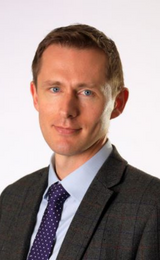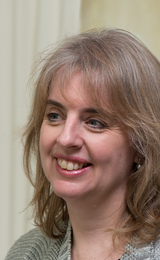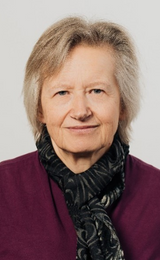
Assembly members met on 27 and 28 November for the fifth weekend of the Citizens' Assembly. The focus of the weekend was on upholding rules and standards.
On this page, you can find the agenda for the fifth weekend and links to videos of the plenary sessions and the speakers' presentations. Assembly members received a number of documents before the weekend:
- An updated glossary of terms
- A recap of some of the content covered at Weekend 4 (Deliberative and Participatory Processes)
- Speaker biographies
Assembly members spent much of the weekend discussing the issues among themselves in small groups. Please note that recordings of these small-group discussions are not publicly available, so that members can feel uninhibited in expressing their ideas.
Weekend 5 Agenda
Session 1, Saturday morning – 10:00 – 12:30
Watch the plenary sessions and speaker presentations from session 1 in full or click the links below to watch the presentations individually.
- Welcome back to the Assembly, introduction to the weekend, and live draw to decide the prize winner among last weekend’s survey respondents
- Introduction to different ways of upholding rules and standards – presentations from Meg Russell, Jane Martin and Chris McCorkindale, with time for small-group discussion between talks
- Wrap up
Session 2, Saturday afternoon – 14:00 – 16:30
Watch the plenary sessions and speaker presentations from session 2 in full or click the links below to watch the presentations individually.
- Introduction to the afternoon session
- Small-group discussion about placing external limits on government and parliament
- Short introductory remarks about different ways of upholding rules and standards – presentations from Richard Ekins, Catherine Barnard and Jill Rutter
- Break
- Panel discussion on ways of upholding rules and standards, with Richard Ekins, Catherine Barnard and Jill Rutter
- Small-group discussion, responding to points raised in the panel discussion
- Plenary feedback
- Wrap up
Session 3, Sunday morning – 10:00 – 12:30
Watch the plenary session from session 3 in full.
- Introduction to the morning session
- Small-group discussion
- Break
- Small-group discussion, followed by statement writing
- Wrap up.
Speaker biographies
Professor Alan Renwick

Alan Renwick is the head of the project that the Citizens' Assembly on Democracy in the UK is part of. This project is investigating what kinds of democracy people in the UK want, and is called Democracy in the UK after Brexit. He is Deputy Director of the Constitution Unit and Associate Professor in British Politics at University College London (UCL). He carries out research into how citizens can take part in democratic politics and policy-making, particularly elections, referendums, and citizens’ assemblies. He also led the Citizens’ Assembly on Brexit, which was held in 2017.
Professor Meg Russell

Meg Russell is one of the organisers of the Democracy in the UK after Brexit project. She is also Director of the Constitution Unit and Professor of British and Comparative Politics at UCL. An expert on all things to do with the UK Parliament, her wide-ranging research interests also include the role of referendums and citizens’ assemblies, the organisation of political parties, and female representation in politics. She is a Fellow of the British Academy and a Senior Fellow at UK in a Changing Europe. As well as her academic work, Meg has worked as a researcher in parliament itself, and as an adviser to a previous Leader of the House of Commons.
Dr Jane Martin

Jane Martin is an independent member of the Committee on Standards in Public Life. The Committee is a body that advises the Prime Minister on arrangements for upholding ethical standards across public life in England. Jane brings a wealth of knowledge about public service and its regulation, having previously been the Local Government Ombudsman and Chair of the Commission for Local Administration in England. She is also currently a non-executive member of the Board of the Legal Ombudsman.
Dr Chris McCorkindale

Chris McCorkindale is a Senior Lecturer in Law at the University of Strathclyde. Chris has published widely on a variety of topics, including on the UK’s constitution and on the law and politics of devolution, Brexit and Scottish independence. Chris is an adviser to the Constitution, Europe, External Affairs and Culture Committee of the Scottish Parliament. He is also Public Law Analysis Editor at Edinburgh Law Review and a steering group member of the Scottish Public Law Group.
Professor Richard Ekins

Richard Ekins is Professor of Law and Constitutional Government at the University of Oxford and a Fellow of St John’s College. He studied law and politics in his native New Zealand before coming to Oxford for graduate study in legal philosophy. His research interests lie in constitutional law and theory, especially law-making, statutory interpretation and self-government. Richard is Head of Policy Exchange’s Judicial Power Project, which considers the proper role of the judiciary within the UK’s constitution. He also leads the University of Oxford’s Programme for the Foundations of Law and Constitutional Government.
Professor Catherine Barnard

Catherine Barnard is Professor of European and Employment Law at the University of Cambridge, and a Fellow in Law at Trinity College. She researches European Union law, labour and discrimination law, and competition law. Catherine is also Deputy Director of UK in a Changing Europe, an award-winning academic initiative that conducts research into the relationship between the UK and the European Union. She has appeared on Question Time and Any Questions, and regularly appears on news outlets explaining different aspects of the Brexit agreement.
Jill Rutter

Jill Rutter is a Senior Research Fellow at UK in a Changing Europe, based at King’s College, London, and a Senior Fellow at the Institute for Government, a leading think tank that aims to make government more effective. She possesses extensive experience of working for government, having been a senior civil servant in 10 Downing Street, the Treasury and the Department for Environment, Food and Rural Affairs (Defra). Jill writes and broadcasts extensively on the civil service, government and Brexit.
 Close
Close



